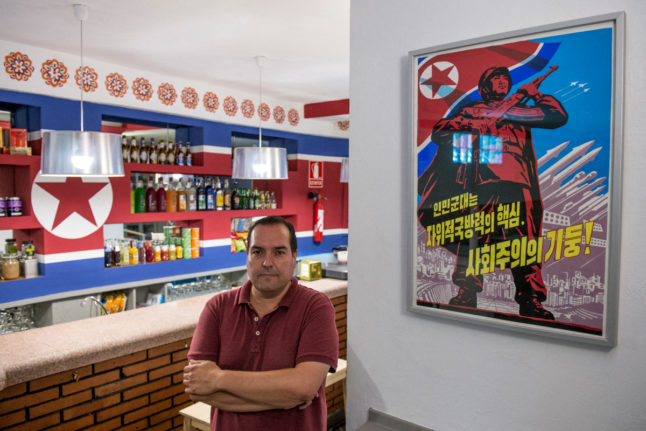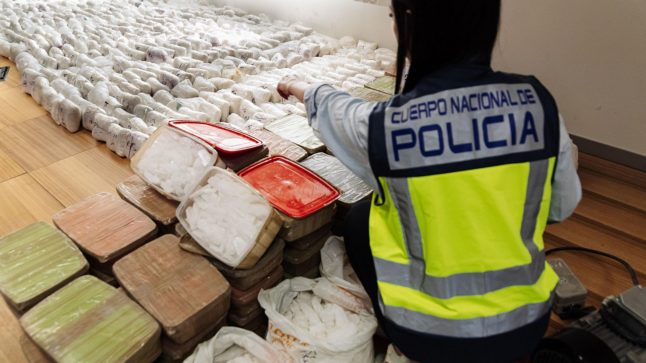Alejandro Cao de Benos, the founder of a pro-Pyongyang affinity organisation who bills himself as a “special delegate” for the government of North Korea, was arrested on Thursday at Madrid’s Atocha train station as he arrived from Barcelona, a police spokesman told AFP.
The 48-year-old Spaniard faces up to 20 years in jail if convicted, Spanish police said in a statement. His extradition to the United States must be approved by the Spanish government and courts, a process that can take months.
US federal prosecutors last year charged Cao de Benos and a British businessman, Christopher Emms, of conspiring to violate and evade US sanctions.
They accuse the two of arranging for American expert Virgil Griffith to travel to North Korea in April 2019 to attend the Pyongyang Blockchain and Cryptocurrency Conference which they organised.
At the event Griffith allegedly taught members of the secretive nation’s government how to use cutting-edge blockchain and cryptocurrency technology to launder money and circumvent sanctions.
Griffith, who holds a doctorate from the California Institute of Technology, was sentenced in April 2022 to 63 months in jail and fined $100,000, after pleading guilty to a conspiracy charge. Emms is still at large according to his description on the FBI’s Most Wanted list.
The United States prohibits the export of goods, services or technology to North Korea without special permission from the Treasury Department’s Office of Foreign Assets Control.
Cao de Benos, a descendant of Spanish aristocrats, appeared before a High Court judge who released him without conditions while the extradition process runs its course.
In a message posted on X, formerly Twitter, he thanked police for their “good treatment and personal support”.
“There will be no extradition. The US accusation, besides being false, does not exist in Spain,” he added.
Cao de Benos founded the Korean Friendship Association in 2000, a club that is officially recognised by Pyongyang and claims on its website to have more than 10,000 members around the world.
The former IT consultant has also coordinated visits by foreign journalists to North Korea and has acted as a middleman between the country’s reclusive communist regime and foreign investors.
In 2016 he opened a small North Korean-themed bar, the Pyongyang Cafe, in his hometown of Tarragona on Spain’s Mediterranean coast.



 Please whitelist us to continue reading.
Please whitelist us to continue reading.
Member comments